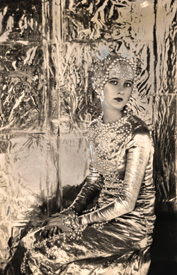 This the title of a satirical song written by Noel Coward, the English. Like all that he does, one wonders at his sharp wit and brilliant use of language. In describing the self-indulgent behaviour of a small number of very rich in the 1920s, he seems to predict whole course of the 20th century and now the 21st in three verses and a chorus with an accuracy that makes one shudder.
When writing an article about new numbers of Brits going walking in Spain, I quoted the title of another of his songs, Mad Dogs and Englishmen Go Out in the Midday Sun. As I was trawling around for the link, YouTube offered a series of other Noel Coward performances and curiosity took my cursor to this one.
This the title of a satirical song written by Noel Coward, the English. Like all that he does, one wonders at his sharp wit and brilliant use of language. In describing the self-indulgent behaviour of a small number of very rich in the 1920s, he seems to predict whole course of the 20th century and now the 21st in three verses and a chorus with an accuracy that makes one shudder.
When writing an article about new numbers of Brits going walking in Spain, I quoted the title of another of his songs, Mad Dogs and Englishmen Go Out in the Midday Sun. As I was trawling around for the link, YouTube offered a series of other Noel Coward performances and curiosity took my cursor to this one.
In this song, Coward is brilliantly making fun of the hedonism of the upper classes in 1927 (although some of the references make me wonder if has updated the lyrics for this recording in the 1950s). In his characteristically English and erudite way, he describes how the adults behave like children right through middle age and and on to old age.
The pleasures that once were heaven, look silly at sixty-seven,
Does it amuse the tiny mites, to see their parents high as kites?
One day you'll clench your tiny fists, and murder your psychiatrists'
He describes excessive drinking, drug taking (he lists the drugs), plastic surgery, undignified drunken 'jiving' by the elderly trying to stay young, people seeking distraction through radio and television in order to avoid the responsibilities of life and then trying to assuage their consciences by running to the psychiatrist's chair. My guess is that this song was popular at the time because those to whom he refers would take a perverse pride in being wealthy enough not to have to behave like responsible adults; and then many of the rest of the population would genuinely like the idea of poking fun at wealthy for their childishness.
It would not have been known at the time just how truly destructive this behaviour is to the person and society and so this is one reason perhaps why he could get away with references to such things at the time. I imagine also the brilliance of the way he has crafted the song and his wit would mean that he was probably given more slack than his contempories.
Listening to it today we know the degree to which the lives he describes are worse than superficial, they are irresponsible and destructive. This bitter truth contrasted with the whimsical manner in which he delivers it, it gives the experience a macabre edge. Another surprise is when it was written, in the late 1920s. It is so accurately prophetic that it sounds like a jab at the hedonism of the sixties, not the twenties. What was true for a small part of the upper classes then, steadily became the standard for behaviour for a large minority perhaps even a majority in society later.
There is an element of self-parody in this song, for Coward was firmly part of the world that he is revealing to others. To hear him articulate so well all the consequences of such behaviour it sounds as though he knew full well where it was leading him. One wonders how troubled he was personally? If that were me, I couldn't live with myself.
http://youtu.be/IqZDroXkwdM
This article was first published in 2012. I was reminded of it by hearing someone talk of importance of the family for nurturing the faith. The hope for the children, one feels, is that they know that there is one who is truly and dependably grown up, Christ. They will learn this through seeing their parents humble themselves before God, kneeling or bowing in prayer. Then though mum and dad are less than perfect occasionally (though one hopes not as bad as those that Coward describes), they will know that there is a greater standard to look to and to rely upon.
Don't forget the Way of Beauty online courses
- 3 College-level transferable credits, $900.
- Audit the college-level course, $299
- Take a reduced version for 25 hours continuing education units (fewer video classes, less material, less interactive teaching) $99
Accredited by Thomas More College of Liberal Arts, available through www.Pontifex.University. To sign up go to the www.Pontifex.University Catalog here.
For artists, for architects, for priests and seminarians, for educators, for all undergraduates! And for everyone who seeks what every Catholic education should offer - a formation in beauty through a living encounter with a cultural inheritance.


